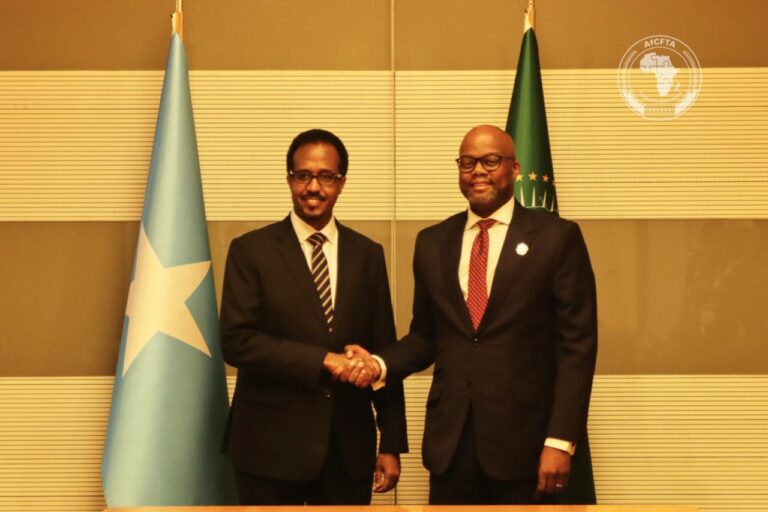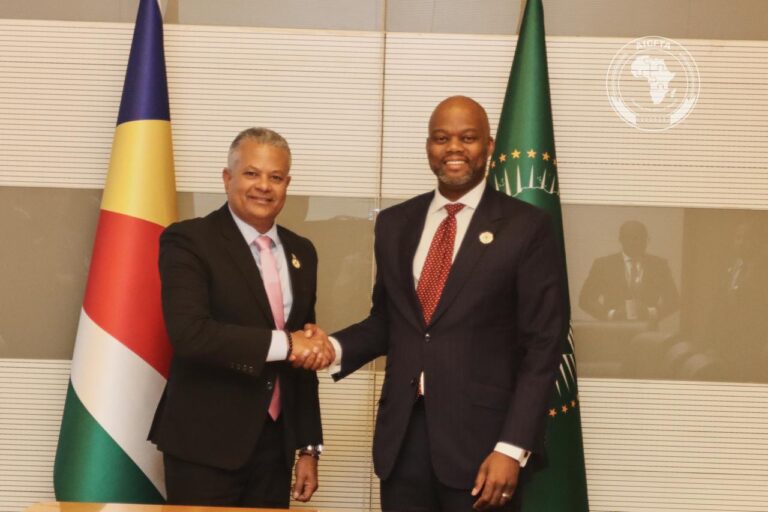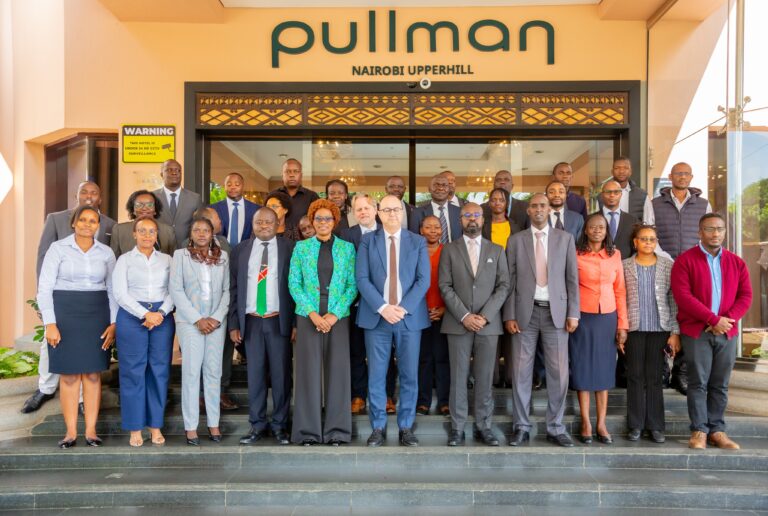Dubai, UAE — 23 September 2024 – The Secretary-General of the AfCFTA Secretariat, H.E. Wamkele Mene, took part in the 10th Annual World FZO World Congress in Dubai, UAE, from 23 to 25 September. He was the guest of honour during the session dedicated to Private Sector and Developers/Operators, while also participating in a Ministerial roundtable on The Future Role of AI and New Technologies in Global Trade 2.0.
In his keynote address on investment opportunities in Africa, H.E. Mene emphasised the role of Special Economic Zones (SEZs) in mobilising investment across the continent. Over the last five years, SEZs have significantly boosted Foreign Direct Investment (FDI), creating 60 million jobs in agro-processing, industrial, and service sectors, and driving $33 billion in manufacturing investment. SEZs have transformed economies in countries like Mauritius, Kenya, Ethiopia, and Nigeria by attracting international companies, strengthening local capacities, creating jobs, and reducing unemployment. “These success stories illustrate the immense potential of SEZs to bridge the gap between current economic realities and previously elusive opportunities,” noted H.E. Mene.
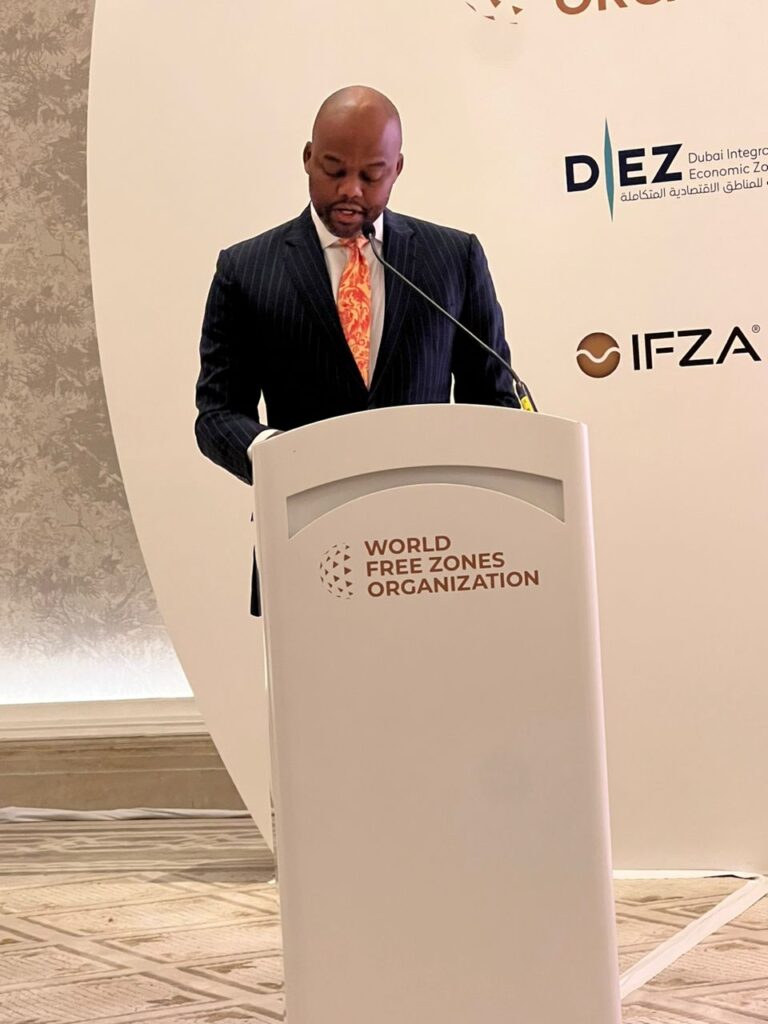
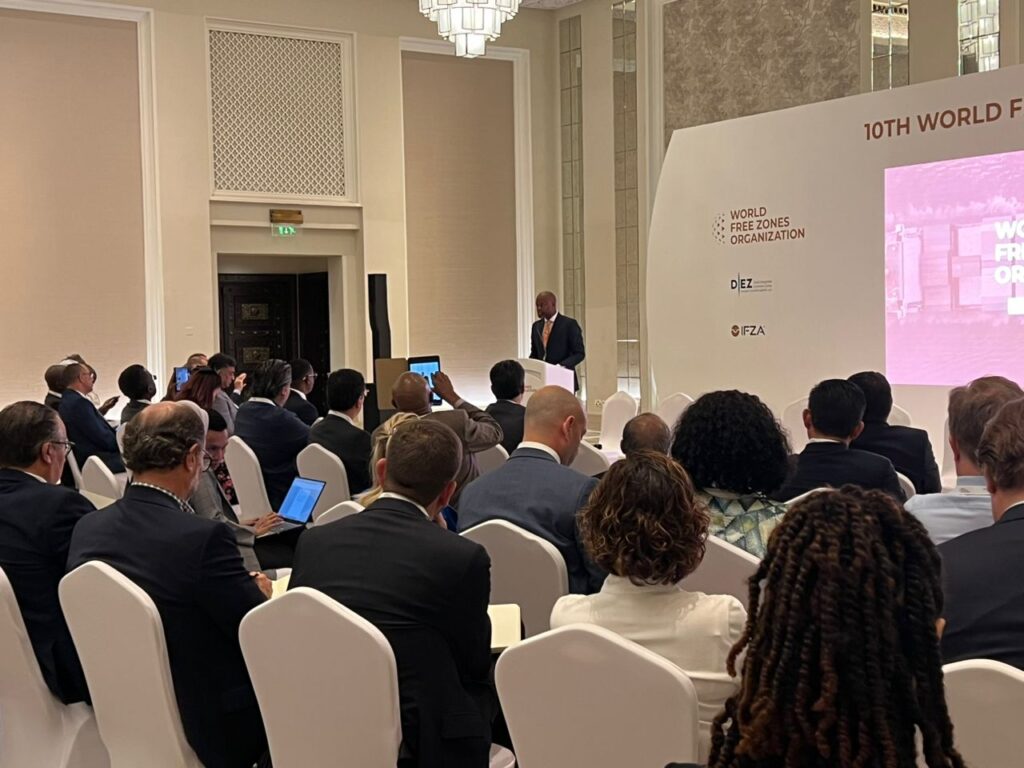
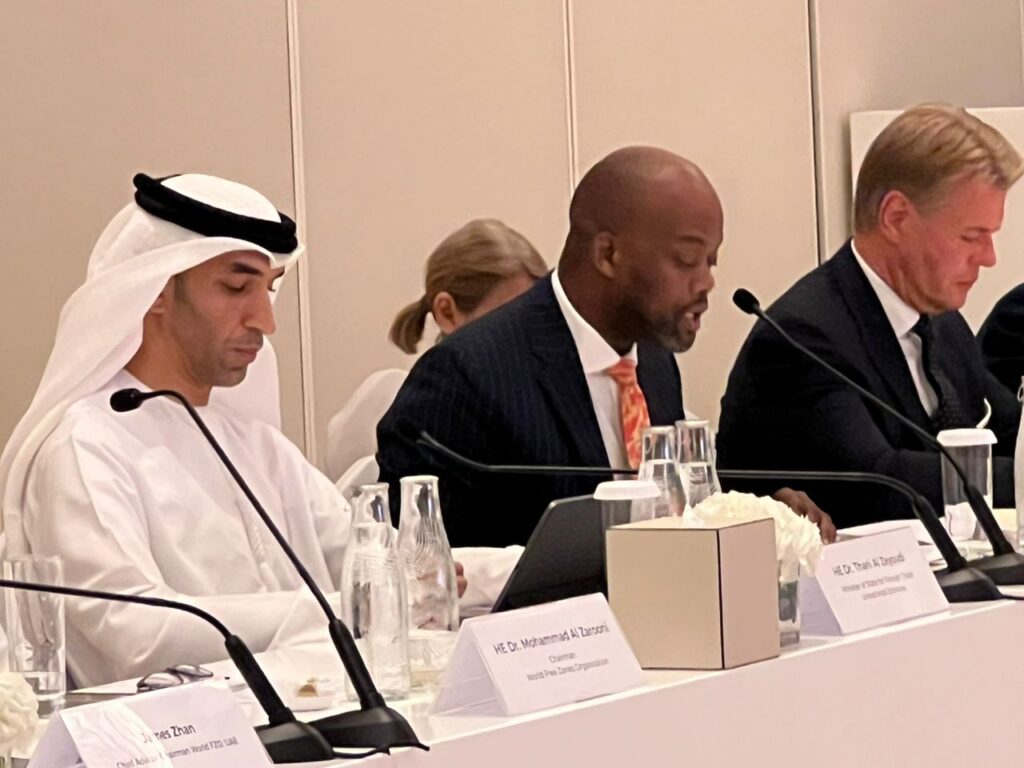
To foster SEZ development, two important legal frameworks have been adopted within the AfCFTA. The Ministerial Regulation on the Special Economic Zone enables products from African SEZs to benefit from preferential regimes if they comply with Rules of Origin. “This regulation encourages investment in one country’s SEZ while providing access to the entire African market,” explained H.E. Mene. Additionally, the AfCFTA Protocol on Investment, adopted by the AU Assembly of Heads of State last year, promotes, facilitates, and protects investments, encouraging sustainable and inclusive economic development.
During the Ministerial roundtable on AI and digital trade, H.E. Mene stressed that the African Union AI Strategy provides a framework for African countries to harness AI for development goals while promoting ethical use and minimising risks. He highlighted the Protocol on Digital Trade, adopted by the AU Assembly in February, which establishes rules to facilitate the deployment of emerging technologies, including AI. “The Protocol on Digital Trade advocates regulating emerging technologies in a way that does not impede digital trade,” said H.E. Mene.
H.E. Mene particularly emphasised the importance of data in realising AI’s full potential. “I am pleased to report that, within the framework of the AfCFTA, we have successfully developed rules that facilitate the cross-border flow of data, as described in the Protocol on Digital Trade.” While AI promises to reshape global trade, he called for vigilance regarding its ethical implications, ensuring that data privacy, job displacement, and fairness remain priorities. “We must use AI in a way that benefits all members of society,” he urged.
On the sidelines of the event, key agreements were signed. The AfCFTA Secretariat and the Government of Djibouti, represented by Hon. Mohamed Warsama Dirieh, Minister of Trade and Tourism, signed a Host Country Agreement for a high-level regional conference on investments in SEZs, to be held in Djibouti at the end of November. Additionally, the Secretariat signed a Memorandum of Understanding with the World Free Zones Organization, further strengthening cooperation to promote SEZ development and investment across Africa.
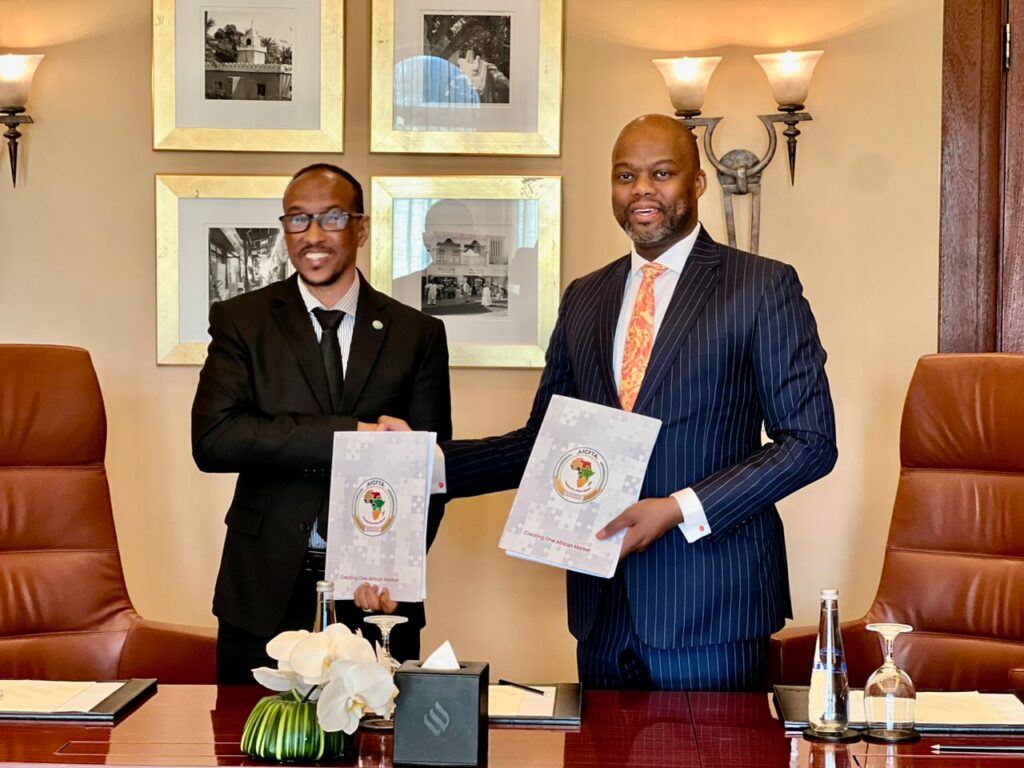
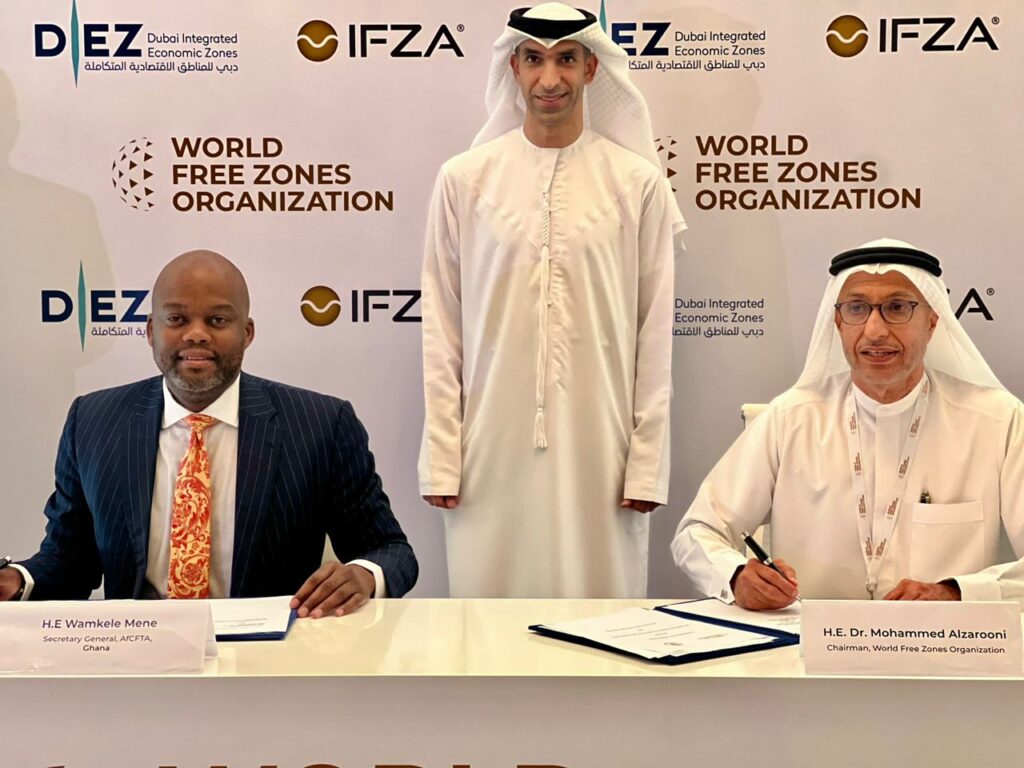
H.E. Mene’s participation reaffirmed the AfCFTA Secretariat’s focus on leveraging SEZs and emerging technologies like AI to advance Africa’s economic integration, attract sustainable investments, and foster inclusive growth across the continent.
